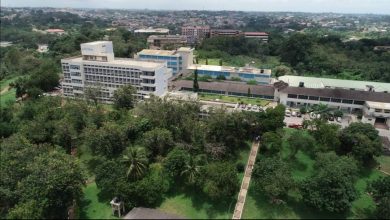
The 123rd Monetary Policy Committee (MPC) meeting of the Bank of Ghana (BoG) began today with a strong call for increased transparency and decisive measures to address the country’s ongoing inflation and economic instability.
Dr. Johnson Asiama, leading his first meeting as Governor of the Bank of Ghana, promptly tackled the urgent economic challenges at hand. With inflation remaining at a concerning 23% and fiscal deficits surpassing program targets, the meeting was crucial in determining the way forward for the nation’s economy.
“There’s a growing sense in public commentary that MPC decisions are taken behind closed doors without clear, data-driven reasoning,”.
In his opening remarks, Dr. Asiama proposed implementing measures to make the Committee’s decision-making process more accessible, such as publishing voting outcomes or enhancing the narrative content of policy statements. He emphasized that transparency and forward-looking guidance would be crucial in managing inflation expectations and stabilizing the economy.
The Governor outlined a complex picture of Ghana’s economic landscape. While recent trade surpluses and reserve growth, primarily driven by gold exports and remittance inflows, provided some optimism, external risks remained significant. Rising geopolitical tensions, the potential for global tariff wars, and weakening demand from China could quickly shift the country’s economic trajectory.

“Domestically, the 2024 fiscal outturn was expansionary, and while early 2025 has shown signs of consolidation, questions remain as to whether current measures are adequate to anchor expectations and satisfy upcoming IMF program reviews,” he noted.
As financial conditions continue to evolve rapidly, banks have expressed concerns about the Cash Reserve Ratio (CRR) framework, while liquidity pressures continue to mount. Although private sector credit has improved in nominal terms, it remains weak when adjusted for inflation, posing additional challenges to economic recovery.
One of the key issues before the committee is how to strengthen the disinflation path without hindering economic growth. The Governor acknowledged previous policy missteps, including excessive fiscal spending during periods of macroeconomic stress and weak coordination between monetary and fiscal authorities.
He urged the committee to not only address immediate concerns but also focus on long-term structural issues, such as underinvestment in agriculture, exchange rate misalignments, and the need for deeper domestic financial markets.
“In short, we are facing a convergence of risks: stubborn inflation, elevated liquidity, soft real interest rates, a fragile fiscal recovery, and growing external uncertainty,” Dr. Asiama cautioned.
“But we also have buffers strong reserves, improving sentiment, and the credibility of our policy framework to guide us.”
The 123rd MPC meeting is set to conclude in the coming days, followed by the release of policy decisions and an official statement.




